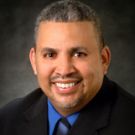When you went to bed, did you know you were going to wake up? Most of us either didn’t give it a thought or had the expectation that we would awaken today; we don’t always remember that tomorrow is not promised (James 4:13-15). I think the prayer that we most often hear, especially from children, illustrates this perspective.
“Now I Lay Me Down to Sleep,” has been handed down from generation-to-generation. It first appeared in The Spectator magazine, in 1711. The prayer was authored by magazine co-founder Joseph Addison, inspired by Psalms 4. Since its origin, there have been many versions, the most familiar and commonly taught to children goes:
“Now I lay me down to sleep,
I pray the Lord my Soul to keep,
If I should die before I wake,
I pray the Lord my Soul to take.”
April, more than any other month, challenges us to reevaluate not only how we teach this prayer but how we view resurrection. Why April? Because it is the most spiritually significant month in our calendar. Around the world, we gather as families and church communities to celebrate many religious observances, including, among Christians, Holy Thursday (Maundy Thursday), Good Friday, Passover, Palm Sunday, and Easter (the resurrection of Christ).
But rising from the dead isn’t about God demonstrating His power over death. Resurrection wasn’t even a one-time event; there are at least 10 resurrections in the Bible. Easter is the fulfillment of God’s promise of redemption, restoration and salvation; one available to us all. I think the often omitted, second verse of the Now I Lay Me Down prayer, provides some insight to the true meaning and intent of resurrection, it says:
“If I should wake for other days,
I pray the Lord to guide my ways.”
I’ll confess, I didn’t know the prayer had a second verse; but these 15 words have caused me to ask if it isn’t time to reevaluate our understanding of resurrection and how we teach the prayer. While the prayer’s first verse expresses our desire to be with the Lord in eternity. The second verse expresses our desire to “live this life” in accordance with His will and in obedience to His way.
Resurrection represents the opportunity for a “do over.” Every day we awaken, we have the chance to do things better, to do things differently; the chance to let God guide our ways. Merriam-Webster says resurrection is “a material belief that yields to spiritual understanding.” This definition is foundational to anyone that aspires to lead like Jesus. In a sense, each time that we learn something that inspires a change in our thoughts, actions or behaviors to better align our Heart, Head, Hands and Habits; we are resurrected. 2 Corinthians 5:17 (TLB) tells us:
“When someone becomes a Christian [leads like Jesus], he becomes a brand-new person. He is not the same anymore. A new life has begun.”
You’re probably saying, sounds great but how? Let me ask you, what would you change if you knew you were dying? I could cite some research behind this question but I think it’s easier to just tell you about the story behind country music singer Tim McGraw’s hit, “Live Like You Were Dying.” According to an article written by James Moody (2023), “the song was actually inspired by a real-life experience. Songwriters Tim Nichols and Craig Wiseman were talking about how much they admired Tim McGraw’s father, former baseball player Tug McGraw, who had recently been diagnosed with cancer. Wiseman had the idea to write a song about the importance of living life to the fullest, and Nichols came up with the opening line “He said, ‘I was in my early forties, with a lot of life before me.’” The rest of the song fell into place from there.” The song was recorded and made its way to long-time friends and associates, Tim McGraw and his wife, country music star, Faith Hill. The rest is, as they say, history. Among the messages of change contained in the song are made:
- I loved deeper.
- I spoke sweeter.
- I gave forgiveness I’ve been denying.
- I was finally the husband that I’d never been before.
- I became a friend a friend would like to have.
- I finally read the good book.
Wouldn’t we all like to experience these changes? I don’t think it’s the knowledge that he is dying that prompts the changes; we enter this world with an expiration date. I believe it’s the resurrection of the spirit within that realizes it’s never too late to change. It is the power and knowledge that comes with resurrection.
Challenge: Jesus lived every moment of his life knowing when He was going to die. He lived purposefully. He spoke sweeter and loved deeper. I hope you take the time to listen to the song and watch the video with the link provided above. More importantly, I hope you ask yourself, what would I change if I knew that I was dying? Now, start making those changes and live each moment to its fullest in a new and resurrected life.
Next article, I’ll conclude by discussing how we can use the power of prayer and sleep to improve our life’s journey. I hope you’ll join me.










